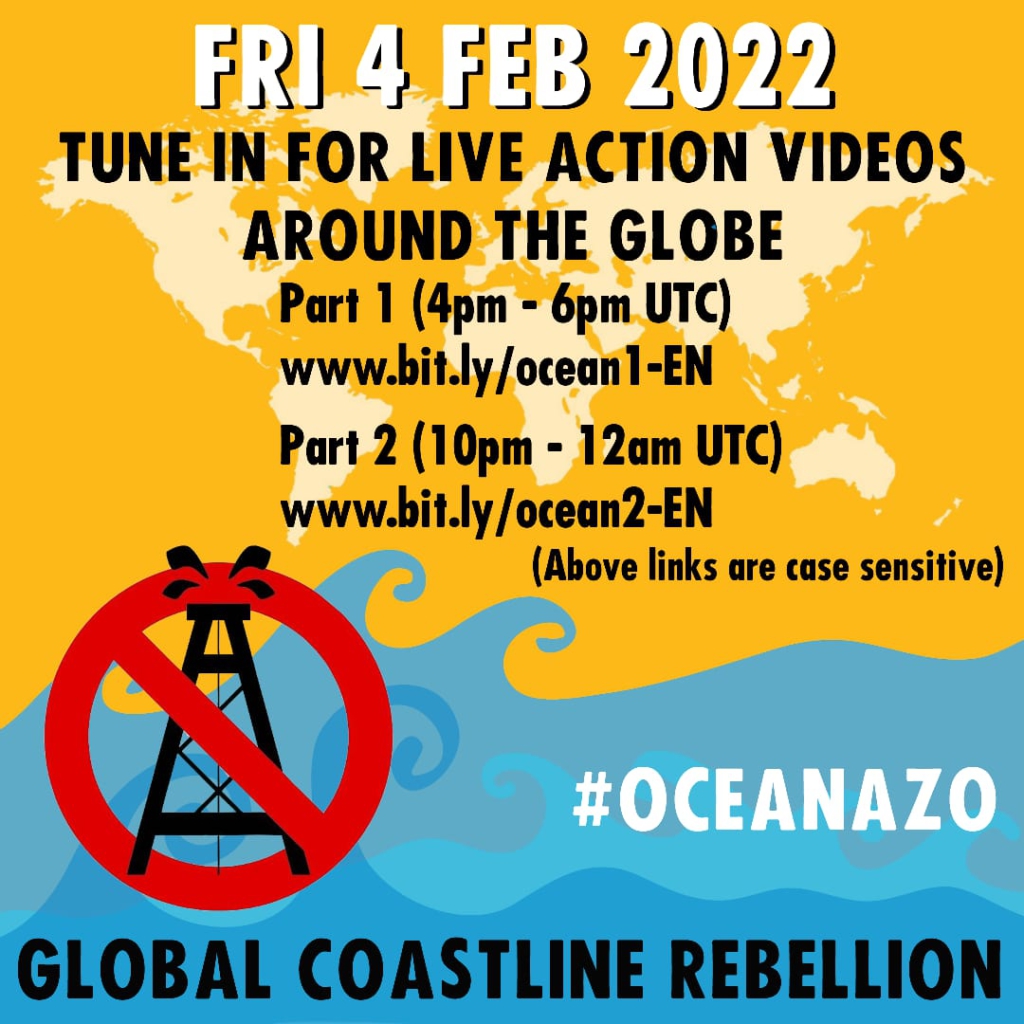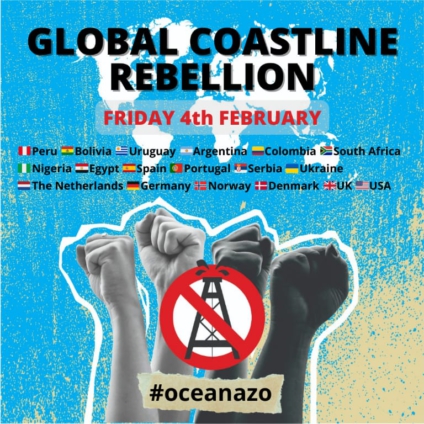Movements across 19 countries in the Global South and the Global North will march on Friday, February 4th, in an action against neo-colonialism, corporate power and environmental destruction.
Communities and activists will show solidarity with Most Affected People and Areas (MAPA) by environmental crisis.
They will call upon the world to join their fight for oceans, seas and global justice, under the hashtag #oceanazo.
The activists are uniting as a global rebellion of coastlines, affected communities and supporters, building a multinational resistance against a multinational threat.
From South Africa to the Netherlands, Argentina to Norway, Perú to Germany among other countries, demonstrations and creative actions will be carried out by movements at corporate headquarters, national embassies.
Fossil fuel extraction as a result of multiple oil spills worldwide has caused more harm in the past years.

In a release issued on Wednesday, cited by JoyNews Mahmud Mohammed-Nurudeen, the movements said, "Chevron (US) is responsible for approximately 50 thousand litres spilled in Thailand last week, and days later almost two million litres were spilled in Ecuador, polluting Amazonian ecosystems for the second time in only two years."
"In Perú, a catastrophic oil spill by European oil and gas multinational Repsol is currently affecting over 20 beaches, devastating marine life and ecosystems, bringing several endangered species to the brink of extinction, and threatening the health and livelihoods of thousands of people. The company denies responsibility for the spill and is refusing to pay for the clean-up."
On the coastlines of Argentina and South Africa, they say, thousands are mobilizing against European fossil fuel corporations, including Shell, Equinor and Total, poised to conduct seismic surveys, deepwater drilling and fracking.
According to them, these activities are threatening devastation to communities, marine wildlife and the environment for corporate greed.
Homelands of local communities and Black are being destroyed by multinational corporations, often employing methods - like fracking - banned because of their devastating impacts on ecosystems and human health.
"They will not stop their neo-colonial exploitation unless they feel pressure from the streets," the movements said.
They want them to stop polluting the oceans, disturbing marine ecosystems, and destroying the livelihoods of millions.
"We demand just and collective energy sovereignty against exploitative multinational corporations; a halt to the decrees and legislations that promote hydrocarbons; an end to extractive projects in the sea, land and jungle; sanctions against corporations that have polluted and damaged these peoples and territories; and that corporations pay reparations to those already affected." Osver Polo Carrasco of The Citizen Movement against Climate Change (Mocicc) in Perú said.
Latest Stories
-
Town council in Canada at standstill over refusal to take King’s oath
28 mins -
Trump picks Pam Bondi as attorney general after Matt Gaetz withdraws
40 mins -
Providing quality seeds to farmers is first step towards achieving food security in Ghana
51 mins -
Kenya’s president cancels major deals with Adani Group
2 hours -
COP29: Africa urged to invest in youth to lead fight against climate change
2 hours -
How Kenya’s evangelical president has fallen out with churches
2 hours -
‘Restoring forests or ravaging Ghana’s green heritage?’ – Coalition questions Akufo-Addo’s COP 29 claims
2 hours -
Ensuring peaceful elections: A call for justice and fairness in Ghana
3 hours -
Inside South Africa’s ‘ruthless’ gang-controlled gold mines
4 hours -
Give direct access to Global Health Fund – Civil Society calls allocations
4 hours -
Trudeau plays Santa with seasonal tax break
4 hours -
Prince Harry jokes in tattoo sketch for Invictus
4 hours -
Akufo-Addo commissions 200MW plant to boost economic growth
5 hours -
Smallholder farmers to make use of Ghana Commodity Exchange
5 hours -
I want to focus more on my education – Chidimma Adetshina quits pageantry
5 hours

